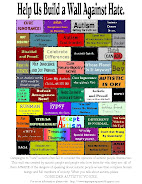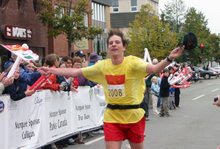The Truth About Hydration in the Heat

Most articles about exercising in the heat are all about hydration. But did you know that drink fluids during exercise in hot weather actually does very little to prevent the body's core temperature from rising? It's true, and the studies prove it.
For example, a 2007 study from the University of Exeter, England, found that fluid consumption did not prevent a rise in body temperature or improve performance in a half-marathon running event. This was the first study to monitor internal body temperature continuously throughout a real race, using high-tech sensors that runners actually ingested the night before the race, which took place in hot and humid conditions.
Runners consumed as much or as little fluid as they wished during the race, and there was a high degree of variability in drinking rates. Runners replaced between 6 and 73 percent of body fluid losses over the course of the run. Researchers found no correlation between the amount of fluid runners consumed and their body temperature or performance. Thus, they concluded that drinking fluid had no effect on body temperature or performance in this context.
However, there is another way to interpret these results. Evidence from other recent studies suggests that the nervous system regulates body temperature and performance during exercise in the heat through a mechanism called regulatory anticipation. Essentially, the brain allows the body to work hard enough--and only hard enough--to reach his highest safe core body temperature, which is more or less the same in all humans.
Therefore, as long as they are working at maximum capacity--as one does during a race--runners competing in the heat will reach the same core body temperature whether drinking has a cooling effect or not, because inasmuch as it does have a cooling effect, the runner's brain will simply allow him to run a little harder so that he still reaches the same body temperature.
But, if this is so, wouldn't the authors of this study at least have observed a performance benefit to hydration? The answer is that they probably would have observed a performance benefit if they had looked for one within individual runners (by having each of them run the race twice--once without fluid consumption and once at the runner's natural rate of fluid consumption), but instead they looked for a general correlation between drinking rate and performance in the general study population. Presumably, however, each runner instinctively consumed fluid at the proper rate to maximize his individual performance.
This speculation is borne out by a more recent study performed by researchers at the University of Cape Town South Africa. In this study, cyclists performed a time trial in a hot environment on several occasions, consuming fluid at a different rate in each. The authors of the study found that the rate of fluid intake had no effect on core body temperature, but it did affect performance. The cyclists performed best when they drank at an "ad libitum" (freely chosen rate).
So while drinking while running in the heat will not cool you down, it will speed you up. Specifically, drinking during hot-weather runs will keep your blood volume at close to normal levels, which in turn keeps your sweat rate high. And since oxygen is delivered to the muscles through the blood, maintaining your blood volume through drinking also enables your heart to deliver more oxygen per contraction, so you perform better than you can if you allow your body to become too dehydrated.
How much should you drink? Studies such as the one above suggest that you should simply drink according to your thirst. Drinking more will neither keep you cooler nor improve your performance; but it will increase your chances of suffering from GI distress.
By far the most effective way to prevent your body from overheating while running in the heat is not to drink a ton of fluid but simply to slow down. But your brain, through its anticipatory regulation mechanism, will strongly encourage you to do this anyway, at first by making you feel uncomfortable at your normal pace and then, if necessary, by simply refusing to allow your muscles to work as hard as you want them to.
This mechanism is no failsafe, however. During exercise in the heat, it is possible for the brain itself to overheat, causing this protective mechanism to fail and opening the door to heat illness. So, to avoid this dangerous situation, take all the usual precautions such as avoiding exercise during the hottest part of the day, wearing appropriate technical apparel, and heeding warning signs such as dizziness, lightheadedness and cessation of sweating.



























No comments:
Post a Comment